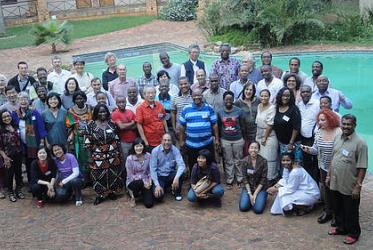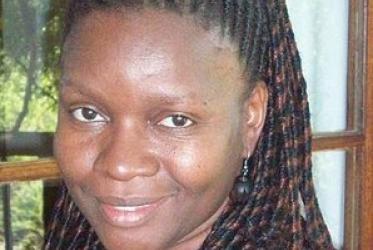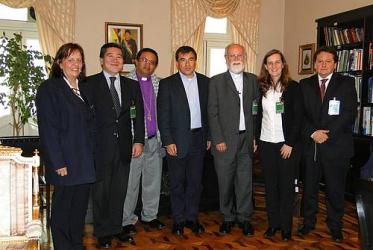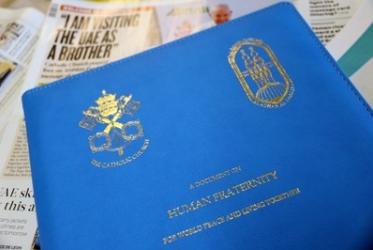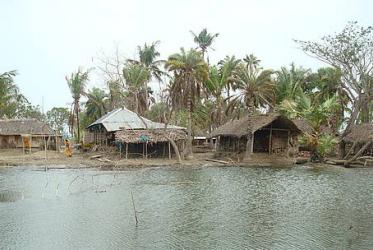Displaying 1601 - 1620 of 1621
28 March 2013
Churches engage in development dialogue on Africa
06 March 2013
Living with God in the context of HIV and AIDS
27 February 2013
Working for climate justice is an ethical and spiritual imperative
27 February 2013
Statement on global economy delivered to Bolivia
15 January 2013
Letters to the future: Eco-justice visions in South Africa
13 December 2012
Brazilian youth advocate for peace in Palestine at WSF
12 December 2012
Youth learn “different ways of living Christian faith”
03 September 2012
The world of mission and evangelism experiences big changes
29 November 2011
Religious voices advocate for climate justice at Durban
28 November 2011
Echos for Peace: ecumenical youth launches a new book
01 November 2011
Churches proclaim child theology imperative to Christian ministries
15 September 2011

